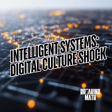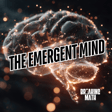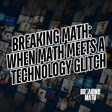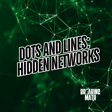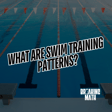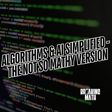Introduction to Neuroscience
00:00:00
Speaker
Neuroscience is a topic that in many ways is in its infancy. The tools that are being used in this field are constantly being honed and re-evaluated as our understanding of the brain and mind increase. And it's no surprise, the brain is responsible for the way we interact with the world and the idea that ideas hone themselves is not new to anyone who possesses a mind. But how can the tools that we use to study the brain and the mind be linked? How do the mind and the brain encode one another? And what does Bayes have to do with this? All this and more on this episode of Breaking Math.
00:00:28
Speaker
Episode 53, Big Brain Time.
Meet the Hosts and Guest
00:00:35
Speaker
I'm Sofia. And I'm Gabriel. And welcome to Breaking Math. I will mention that we are recording this both for the Breaking Math podcast, as well as for my YouTube show, the Touring Rabbit Holes podcast. So kind of a double show, a two in one. And we are delighted to be interviewing a researcher from, I'm sorry, how do you say it? It's the Center for Human Neuroimaging. Is that correct? Yeah, it's the Welcome Center for Human Neuroimaging at University College London.
00:00:57
Speaker
Beautiful. Thank you so much. I am delighted today that we are interviewing a Dr. Peter Ziedman. Am I saying that correctly, sir? Awesome. So I am very, very active on Twitter. And I very frequently will talk about a math topic that we're researching for our show. And very often it has something to do with human consciousness, often inspired by Godel or Bach. And I was very happy that one of the outreach folks from your research organization contacted me and suggested this interview. So I'm very happy about that.
00:01:26
Speaker
So I think the first question that we should start with is, who are you and what do you do?
Exploring Brain Networks
00:01:32
Speaker
So my name is Peter Seidman, as you introduced me, and I am a neuroscientist. So I develop technology for investigating networks in the human brain and how those networks change when we perform different kinds of tasks. So when, for example, when we remember events from the past. So I use that technology that I developed to investigate memory and imagination and how they link to visual perception. So how we kind of live in the present, how we remember the past and imagine the future.
00:02:01
Speaker
you and i have talked a little bit about email about your specialty in memory and also in imagination and we talked a little bit about some recent science fiction you had suggested the movie memento full disclosure i didn't see it yet i meant i meant to watch it before this interview but it's life is crazy sometimes
00:02:19
Speaker
but there's been many examples of science fiction where it talks about memory and imagination and I think it's fun to bring it up, you know, about who gets it right and what we can learn from it. Tell us a little bit about Memento and why you like that movie. Why did you suggest that and how do the concepts involved, how might they relate to your work?
Types of Memory and Scientific Insights
00:02:40
Speaker
So there's different kinds and I'm so aware that I'm starting sentences with so. People really hate it when I do that.
00:02:47
Speaker
Sorry not to do that again for the whole rest of the podcast. There are different kinds of memory. And what we know is that different kinds of memory involve different parts of the brain to different extents. And the part of the kind of memory I'm really interested in is the kind of memory that lets you close your eyes and vividly imagine something either in your past or in the present or in the future.
00:03:11
Speaker
That kind of memory, what's called episodic memory, your ability to kind of replay episodes in your mind's eye, that kind of memory is associated with a particular part of the brain called the hippocampus. And every neuroscientist has their favorite bit of the brain, and I love the hippocampus. And when you get damage to it, you get a particular kind of memory loss, which is the kind of memory loss you see in the moving memento.
00:03:41
Speaker
And the character in that movie has difficulty in taking on new memories, what's called anterior-grade amnesia. So he can remember things for a few seconds, minutes, but then as soon as he walks out of the room, he's forgotten everything that happened before and it's turned into a plot where he has to, but I won't give too much away. The notion that there are particular parts of the brain that allow us to encode
00:04:09
Speaker
a kind of like a model or a representation of the world. And if those bits of brain are damaged and you get this profound loss, it turns out not only of our ability to visualize things from our past, but also to imagine the future. That's why I like that movie. Of all the memory-related movies, that's probably the most scientifically legit.
00:04:30
Speaker
So you bring up the future. I did a little reading into the Bayesian neurology stuff. And it mentions quite a bit about the relationship between surprise and free energy. Is that part of the research that you do? Sure. I mean, that's a really big topic. And so what you're talking about there is the relationship between information theory, that I know Gabriel J. Keenan, and how we think the brain works.
00:04:59
Speaker
So maybe it'd be useful just to kind of talk about some of the big ideas at the moment and how the brain works, because that then speaks very closely to the mathematics that goes with it, which is related to the probability and information
Brain Predictions and Sensory Updates
00:05:10
Speaker
theory. I guess one important unifying idea that is particularly important in a lot of different computational accounts for the brain today is that the brain is like a simulation engine. So the brain is constantly simulating
00:05:25
Speaker
If the world was in this particular state, what would I expect to perceive? So if it were the case that there was a tiger hiding behind my bookshelf on the other side of the room, what patterns of light would I expect would be falling on my retina? What rustling sounds would be arriving at my ears?
00:05:48
Speaker
So that's the idea that the brain is constantly trying to predict what's going to happen next. If those predictions are right, then the brain doesn't have to do anything. If the prediction matches the sensory information, then the brain doesn't have to expend much energy. But if the prediction's wrong, so if something is surprising,
00:06:05
Speaker
If there's a mismatch between the prediction and the data, then the brain has to do work to kind of update its understanding of the world. So understanding how that kind of predictive engine is implemented in the brain. What are the computations it performs? And what's the actual wiring? What's the circuitry that lets that happen? That's key to modern computational neuroscience.
00:06:29
Speaker
And so you mentioned the thing about if your expectations don't match reality, then the brain, it seems like almost like grinds. It has kind of like a reconfiguration process. And it seems like you're saying that drives the learning process, but is it just the learning process or is it all aspects of neurology in your findings and in the literature?
00:06:55
Speaker
Yes, I mean, this idea of predictive coding is actually very, it's a really nice set of theories or a really nice framework, because it can explain an awful lot of what the brain does, not only memory as a separate process, but how we see the perception and how we move, actually, and how we take action. The brain is really complicated. And just trying to work out how to ask the right questions about organizing principles is a challenge. There's quite a nice way of thinking about it that came from a
00:07:25
Speaker
a British neuroscientist and computer scientist called David Marr. And he had this idea of three levels of analysis. So kind of at the top level, you've got what the brain does, like the kind of computational account, what are the computations that a brain perform? And then at the level below that, you've got the kind of the algorithmic level. So what algorithms does a brain implement through its connections to make that happen? And then at the base level, you've got what's the physical implementation?
00:07:51
Speaker
brain doesn't have transistors like a physical computer, but it has a particular wiring, a particular circuitry. And kind of neuroscientists will focus probably on those on those different levels. And what's really interesting and useful is how those levels interact. Yeah, I was just gonna say there seems to be quite a bit of overlap. Absolutely. Yeah. So I mean, if you're asking like, what, what's the role of surprise? So the role of surprise, we can understand it at kind of like the computational level. So if I was
00:08:21
Speaker
doing, if I was working in machine learning, doing data mining, I might use artificial neural networks and they use these ideas from neuroscience to, um, to, to learn by minimizing the difference between the predicted and the actual data. So that's kind of at the algorithmic level. You can then come down to the circuitry level and say, now we know what computations
Sensory Processing Hierarchies
00:08:44
Speaker
the brain must be performing. What could we predict to see in the wiring?
00:08:49
Speaker
And that can actually tell you a lot about what, or help us to explain how the brain is wired. So for example, we have, if the brain was performing this kind of prediction and prediction errors, we'd expect to see different kinds of connections. Connections going one way that carry the predictions. Connections are going the other way that carry the prediction errors. And indeed that is what you see. You see these different, what are called laminar connections going in different ways.
00:09:17
Speaker
So your question is a massive one. What's the role of surprise? And it's a really important one. And basically, bringing it back to memory, when something occurs that we didn't predict, that's when we now need to update our memory, or in other words, update our model of the world.
00:09:33
Speaker
This is fascinating stuff. This is absolutely fascinating. I mentioned earlier that my obsession is Shannon's information theory. We've done multiple episodes on Shannon's information theory itself, but the fascination with cognitive processes are that once you understand Shannon's information theory,
00:09:51
Speaker
Although we don't have transistors in our brain, it is understood that whatever happens in our brain, it is a communication system, and it must follow the laws of physics, and it must follow Shannon's information theory.
00:10:06
Speaker
So for that reason, I'm still very, very curious about it. Reading on the website for your institute, there's a lot of discussion on hierarchies. And one of the things that I'm very curious about with our sensory, you know, with our brain is sensory processing, and how that deals not only with memory, but with the process of cognition itself. I mean, how many senses we have?
00:10:29
Speaker
how our brain takes in all of the information, even fundamentally down to bits and bytes, and then how are the hierarchies set up? What takes precedence? Yeah, because I remember one thing that Gabriel was talking about, out of many, is we talked about this episode about how the amount of information that the neurons on the surface of the retina
00:10:49
Speaker
receive is much greater than the amount of information going through the optic nerve. It's just very strange all these different things, and that even seems to be greater than the amount of information that we could fundamentally process consciously. I have a question in a little bit of a two-part question.
00:11:08
Speaker
A lot of people report when they're driving or when they're at the supermarket that they imagine crashing their car. And there's other phenomena like that that seem to be related to things that you were talking about with expectation and predicting the future. Like I've heard of this thing called the fridge door effect, which where you look for a bottle of ketchup and you point to everything and it's not ketchup.
00:11:31
Speaker
and you skip the catch-up because you're used to it not being catch-up. In light of all that, what are the role of studying phenomena in your field? And have you done any research on mental situations like OCD? That's a big question. Yeah, so there's a lot there, so absolutely. So I think maybe it would just be good to talk about them. So Gabriel raised this idea of hierarchies. And then you're asking really interesting questions about how they relate to everyday life and how they
Balancing Beliefs and Perception
00:12:01
Speaker
messaging may go wrong, is that psychiatric or neurological disorders. So maybe it would be worth just explaining a little bit what we mean by a hierarchy. Because in neuroscience, we're often looking for kind of broad brush
00:12:15
Speaker
unifying ideas that can explain a lot about the brain and try and simplify it down to some simple concepts. And one very powerful concept is the notion of hierarchies. But the idea here, as you said, is that we have got all this incredibly noisy information coming into our senses. I mean, just how noisy that information is, is quite amazing. And I think the example you gave there with a retina is a really nice one, because
00:12:40
Speaker
a bit like the clear area of our vision, our foveal vision, where we can have really high resolution. It's really small that area. It's about, if you were to hold your thumb out, then your clear vision is about double the width of your thumbnail. What you perceive is a high definition world around you. And that trick that the brain is performing kind of gives away some of what's going on here, because essentially what it has to do constantly
00:13:10
Speaker
is to infer the causes of sensation. So you've got all this noisy information. It's not enough to interpret what's going on in the world. The brain has to model or infer what the causes of those sensations were. So then that model then, I keep saying that the brain is creating, has to be implemented in some way. And what you find is in the world, there are statistical independencies between certain things.
00:13:40
Speaker
In plain language, that means that certain things don't rely on each other. For example, what something is doesn't depend on where it is. So it would make sense then if you were making a computer model or a neural model of the world.
00:13:54
Speaker
You could quite happily have separate bits of brain for representing what something is and where something is, because those things are distinguishable in the world. And so indeed, that's exactly what you see in the brain. You see that separation of streams of processing for what and where. And it turns out it's hierarchical. So what that means is, at the very bottom level of the hierarchy, you've got, and maybe you covered this when you did a previous thing on the retina you mentioned. At the bottom of the hierarchy, you've got neurons that might encode a spot of light.
00:14:25
Speaker
higher level, a higher in the hierarchy, you've got neurons that might encode lines and shapes above that, faces above that, the concept of grandma. So you're kind of going right the way from the sensory level right up to the abstract level. And that's, that's what a hierarchy is in the brain.
00:14:44
Speaker
It's interesting that you bring up the concept of the grandmother neuron. It seems like you're bringing up indirectly. Do you want to talk about how maybe your research is and is not that? Because what I got the impression of is it seems like you're looking at the general structure and flow of neurons rather than individual sort of like it seems like you're looking at almost like neurons as like some kind of weird like mushy crystal. I think yeah, the idea of the grandmother neuron is often brought up as a criticism.
00:15:09
Speaker
of a way of thinking to say there really be, or could there be a neuron in your brain that represents grandma or Jennifer Aniston? And therefore, if you were to lose that neuron, you'd lose that concept. It's not exactly true, because what we know is that any representation of information depends on overlapping neurons. So you'll have some neurons that activate, maybe this is actually a good place just to introduce a separation of two different concepts of brain organization.
00:15:39
Speaker
One is functional segregation. So it is true that certain extent, different parts of the brain do different things. So there will be a part of the brain that responds to faces, part of the brain called the fusiform face area. If you don't have that, you can't see faces anymore. You get a condition called prostataglozia. But there's a complementary concept, which is functional integration, which is that there's no part of the brain for any one task. There isn't a love gland.
00:16:05
Speaker
and there isn't a making a shopping list gland and there isn't a moving your hand gland, rather all of these cognitive functions rely on overlapping neural networks. So going back to the grandmother idea, there will be cells that come into a particular configuration electrically and chemically to encode grandmother, but those same cells will be involved in representing other stimuli and they're in a different functional configuration.
00:16:33
Speaker
So that would be an idea of how information might be represented at each level of this hierarchy. The key thing about the hierarchy then is that messages get passed between the levels. So the idea is that from a high level, you've got predictions that come down the hierarchy. So a very high level region like the cells encoding grandma will say that if grandma is in front of me, this is what the face that I would expect to see. And in the face barrier,
00:17:02
Speaker
would be able to compare the face that's being observed to what was being predicted. And if they mismatch, if they cannot explain what they've seen, the prediction error signals have sent back up to the hierarchy to say that wasn't grammar. So the idea is you've constantly, at every single level of the hierarchy, got descending predictions and ascending prediction errors.
Predictive Coding and Mental Health
00:17:24
Speaker
You asked a really good question about psychiatric and neurological conditions. One detail of this hierarchy is that the signals are not all treated equally. The signals are weighted by how important there are. Mathematically, this is referred to as precision or inverse variance.
00:17:41
Speaker
So the more confident signal, you can think of it as being the louder that signal will be. So those prediction errors that go back up the hierarchy will be weighted by how big the prediction error is. It's called precision weighting. So that means that through this weighting of signals, we can either put more emphasis on our prior beliefs, the things that we already know, or we can put more emphasis on the data that we're experiencing. So an example would be, vision is a pretty good sense.
00:18:11
Speaker
If my vision disagrees with my sense of balance, I'm probably going to leave the vision more. And a concrete example of that is when you're sitting on a train and the train going the other way starts moving. And now you've kind of got a feeling like you're moving. You know that feeling? It's like an illusionary feeling that you're moving.
00:18:28
Speaker
you can see the train going by and because you've got two different senses in conflict. Ultimately, you're probably going to believe the vision more than your sense of balance and kind of get that illusion happening. I do notice with the example that you just gave though, I noticed that on like when that's happened to me when I sometimes I think that I'm moving at first but it switches often to the second thing like is it anything like burning your hand on a pan where part of your brain reacts before the rest of it has caught up?
00:18:55
Speaker
Yeah, I mean, so this idea of a hierarchy goes all the way down to your hands, for example. So you've got these kind of loops. We haven't actually talked about movement in action. It gets a little bit away from memory. But you've got those loops going all the way down, including via your spine. That's why you can actually move your hand away from something hot.
00:19:18
Speaker
quicker than your brain can process it. But illusions are really fun because illusions highlight what happens when you get a conflict between two different kinds of information. We actually did an example of mathematical illusions on this show. We had a whole episode on paradoxes.
00:19:36
Speaker
And I remember reading some neurological reports, and I know that you've written some stuff about, I think it's how fMRIs can be a little bit misleading, like blood flows stuff. But I do know that I read something about the response to beauty being possible in
00:19:54
Speaker
possible to a mathematical formula like e equals e to the i pi minus one equals zero. I know they showed a bunch of mathematicians that and it had a greater response. And I guess that's also tied into the question of in this hierarchy, can levels move or can levels be represented as other things at higher levels, not just check each other? Like, how does that work? Right. And so I think, yes, the
00:20:19
Speaker
To a certain extent, that hierarchy is going to be hardwired. So to a certain extent, we all have similarities in our hierarchies. And that's why, you know, if we do a neuroscience experiment based, I work with human subjects. So if I take a sample of 30 people for an experiment, I can be reasonably sure that a lot of the gross organizing principles of that hierarchy
00:20:45
Speaker
would be the same for them as they are for the wider population, similar to research with animal models. But then there will be individual differences as well. And as I say, learning is all about updating, updating the connections to synapses in that hierarchy. I think a key idea here is the relationship then between that hierarchy
00:21:04
Speaker
and ideas of mathematics, and particularly the idea of Bayesian inference. Have you covered Bayesian stuff in any of your previous... We've touched on it. We've never touched on any mechanisms behind Bayesian inference. I mean, we could just tell the audience what Bayes' theorem is real quick. Bayes' theorem is if you... Actually, that would take a whole other thing.
00:21:27
Speaker
Yeah, so we have an upcoming episode on Bayes' Theory. I think the basic take-home concept is enough here, which is that we have some beliefs about the world. We then get some data, some sensory information, and then to some extent, our new beliefs will reflect the data. But what's critical is that our new beliefs
00:21:49
Speaker
is a trade-off between our prior beliefs and the data. So if the data is really, really good, in other words, really, really precise to use a mathematical language, then I'm going to be really influenced by the data and not so influenced by my prior beliefs. Recipitately, if my prior beliefs are really, really confident, then I'm going to be much more influenced by my prior beliefs than the data. That's really relevant to these hierarchies in the brain because the hierarchy in the brain is trying to do inference
00:22:18
Speaker
In other words, it's trying to use these, it's using these prediction and prediction error signals to infer the causes of sanitation. Those signals are weighted and weighted by confidence, as I said. So a sense that is more precise, for example, will have a greater impact than a sense that is best precise. A consequence of that is that you can cast any kind of psychiatric or neurological disorder as
00:22:48
Speaker
a misspecification of priors. In other words, if someone's prior beliefs are wrong, or that they're overly precise, that people put too much emphasis on their prior beliefs, or too little, then they'll over underestimate how important sensations are. And to give a concrete example of that, imagine you saw a face in the clouds when you were looking up at the sky.
00:23:15
Speaker
Now, you have a strong prior belief that faces do not happen to live in clouds. So however compelling that data is, your prior beliefs are strong enough that you would ignore that. However, somebody with a disorder that gave them what sometimes referred to as aberrant precision, in other words, too much confidence about their prior beliefs, may have signals coming from parts of the brain representing those beliefs
00:23:40
Speaker
that are too strong. And they will believe, they will overestimate the data and underestimate that prior belief. So getting that constant trade-off between your memories, in other words, your prior beliefs in Bayesian language, and the data, and how much to weigh each of those is a really important way of thinking about psychiatric illness. And that's the whole field of study looking at that, what's called computational psychiatry.
00:24:08
Speaker
goodness there's so that's a thick thick thick field there there's so much going on there I'm thinking about like strong beliefs and I'm also so Sophia and I judge speech and debate and suddenly I'm thinking about like what it takes to get someone to reevaluate their beliefs and how that works at the neurological level
00:24:31
Speaker
And I mean, I know that in these United States that me and Gabriel are from, a lot of people are having horrible problems with their prior beliefs, like influencing all kinds of stuff. I mean, I've heard of people dying of COVID who until their last breath in the hospital will insist that they're not dying of COVID. Are there external factors, stress, any weird neurological stuff that can influence
00:24:59
Speaker
how much somebody is influenced by their own prior beliefs. And can that be, are these processes reversible? It's a really fascinating area. It's not my area of research, but there is a whole field of neuroscience of field psychology called metacognition. So metacognition is your ability to introspect on your own thoughts and confidence. And there's a lot of work going on to investigate what is common across people that have unusually high precision
The Role of Metacognition
00:25:29
Speaker
belief. And you can think of people who are overly confident in their belief, who may be perfectly healthy. In other words, it isn't something medical, but they just happen to be people who have very, very strong beliefs and therefore may disregard evidence. Or reciprocally, people who have too little confidence in their own beliefs and so overweight evidence and change their minds too easily. So the whole field of mass cognition, I think is absolutely fascinating.
00:25:57
Speaker
It just reflects the fact that we need not only to be able to model the external environment, but also to model our own our own thoughts. I have a question. Have you had a finding that changed the way that you live your life? That's a very good question. No, I don't think so. I think the whole scientific being trained in the whole scientific process is quite useful because it helps you to
00:26:25
Speaker
to have a system of, it makes you a very grumpy person who's going to ultimately question everything. The Latin motto of the Royal Society in London, which is the British Science Academy, is the take no one's word for it in Latin.
00:26:42
Speaker
Again, scientific training does give you a certain immunization against taking people's words for it on scientific claims without a certain degree of scrutiny. That's probably quite healthy. It might also make you quite annoying at dinner parties.
00:26:55
Speaker
Oh my God. But I think probably it's the way of thinking rather than the specifics. Yeah, just on that question by itself, you know, like in America, we are a very, very, very religious country. I'm sure you guys know that, you know, across the pond there. But a lot of my family is very religious and a common question is,
00:27:15
Speaker
you know what reinforces say religious beliefs or what reinforces you know uh skepticism and you know how the brain does belief at all i say does belief i realized how absurd that sounds i think for me when i was much younger i i i realized i i could force myself to take the emotion out of it and to not weigh my beliefs or weigh my understanding based on anything emotional whatsoever get better otherwise so
00:27:41
Speaker
Yeah. I do have a question though. It seems like emotions... Where do emotions... Because I know that one of the things that you all study over there is emotion, correct? One of the several facets of... Because I have it here that you all study action, decision-making, emotion, hearing, language, memory, navigation, scene, etc.
00:28:04
Speaker
Yeah, I don't personally study emotions. In fact, I go out of my way to make the experimental design and experimental stimuli I use as unemotional as possible. Can you tell us about a recent experiment that you've been involved with?
Understanding Prediction Errors
00:28:17
Speaker
Because I think that might be interesting to hear about. Yeah, so I think the study of emotion is absolutely fascinating. But it may be tangential to kind of my interest. So I'm interested in very fundamental processes in the brain.
00:28:33
Speaker
that allow you to encode a situation. So for example, if you just went into a new room that you've never seen before, and then later to bring that back into your mind's eye. Now, clearly, emotion is going to have a role in that because you're going to have, for example, a stronger memory, probably if something emotionally salient were to occur. But actually, I'm just kind of at the level before that, which is just asking, what's the very basic circuitry that's allowed that to happen?
00:29:03
Speaker
To give an example of a recent experiment, I was in a collaboration with a researcher at the Donders Institute in Nijmegen in the Netherlands, a colleague in the Dina Dijkstra. And it was a really nice experiment looking at the relationship between imagination and perception of objects. But they had to either imagine or perceive them. And we did some neural modeling on that data. The data was acquired using functional magnetic resonance imaging. So that's a technology that allows us to get an indirect measure
00:29:33
Speaker
of how hard the brain is working at each point in the brain. It's an indirect measure because it goes via blood flow or the amount of blood oxygen rather. So when a bit of your brain is working harder, it needs more oxygen. So that gives us an indirect measure and essentially that measure is just a wavy line. So it is a line on a graph for every point in the head that just says
00:29:57
Speaker
How active was that bit of the head? But as neuroscientists who want to understand the imagination and perception, wavy lines are not interesting. What we want to know about is the underlying neural circuitry. So that's where the mathematics comes in, because now we have to use mathematical models to say, if the brain was wired up in a particular way, this is the wavy line, the neuroimaging magnetic resonance imaging signal, I'd expect to measure.
00:30:25
Speaker
And once you've got that model, that model that says how, if the brain was wired up in this way, this is what it's a measure. You can then run that model in reverse. So you start with the measurements that you've taken from someone's brain. You fit the model to the data using, actually using Bayesian techniques and infer the underlying neural circuitry. And what we found, what Nadina found the first author on that paper is that you get this top down versus bottom up bias in the signaling.
00:30:51
Speaker
When you're imagining the stimulus, imagining the object, you get more top-down activity. And when you're perceiving it, you get more bottom-up activity. Amazing. It also highlights the really weird symmetry we have in neuroscience between what the neuroscientist does and what the brain does. Because a neuroscientist has got all this information
00:31:13
Speaker
it's quite hard to make out in its wavy lines, it's people's breathing, it's people's heartbeat. And we have to end up trying to infer the causes of that data, like what was the neural circuitry, the cause that data has come about. And that's a kind of a similar process that the brain has to perform when it's got all this noisy sensory data. And it's trying to test hypotheses about what was the causes of those sensations. And that's why you get the same kind of mathematics used both as an explanation of how the brain works and the
00:31:43
Speaker
and as tools that we use to investigate the brain. When you were talking about that kind of stuff, it reminded me of one time it was like I bumped into a table and then something else far away, like maybe 20 feet away, broke at the same time. And my brain immediately thought that they were related and then, you know, it deciphered it. And is that the kind of thing, the kind of phenomena that you would study?
00:32:08
Speaker
So yeah, you think you have something called the binding problem. And as a computer scientist, you might be a better place to talk about that than me. Is that what you're thinking of? Oh, no, I just was wondering about the neural circuitry behind that, because I thought that I broke something 20 feet away. Then I realized, wait, that's silly. I can't influence things via telepathy. I must have just hit the table and somebody else must have bumped it. I think that's a really cool example. And it brings together a few different ideas. The first one, which I thought you might be referring to,
00:32:37
Speaker
a general problem of cognition, which is called the binding problem, which is if you have different things happening relatively close together in time, how do you know if they're part of the same event or if they're different events? And it's the same thing with agency, right? So if something happens close in time to me doing something, how do I infer if I called that thing out in the world or if it was just a coincidence? And that's a big problem in artificial intelligence and also in neuroscience. And it's a really cool problem
00:33:07
Speaker
a really cool question. So an explanation for how the brain might do that when you bumped into your table is that immediately when you hear that sound, which you didn't expect, so that sound was a surprise. So you've now got these prediction error signals flying about in your hierarchy in your brain. And the brain has come up, trying to come up with an explanation and maybe it tries two different hypotheses. One hypothesis is that you caused that by hitting the table, even though it's far away. And the other hypothesis is that it's a coincidence.
00:33:39
Speaker
about something called free energy and your question Gabriel about information theory. You can then ask, how do I decide which of those two explanations is better? So which of two models or explanations for data is the better model? That's a problem the brain has to solve and it's a problem that the scientist has to solve when comparing models of data in any field of science.
00:34:05
Speaker
This comes down to statistics and specifically Bayesian statistics and probability. So the notion here is that you want to assess what's the probability of the data given explanation one relative to the probability of the data given explanation two. The probability of the data given the explanation is a quantity called the marginal likelihood in probability, also called the model evidence. And it's a trade-off between two different quantities.
00:34:34
Speaker
which we call accuracy and complexity. So the accuracy minus the complexity. So mathematically, you can write it down. You can break it into those two terms. Accuracy is how well your model explains the data. So it's a correlation between what you predict and what you actually experience. Complexity is how complex that model has to be. How many parameters does it have to use in order to explain the data? And the definition of a good model, statistically,
00:35:03
Speaker
is how well is that trade-off achieved? So a really good model is highly accurate and not very complex. The bigger that trade-off the better the model. So the brain is having to do that assessment and that idea of complexity comes back to information theory because in terms of mathematics that's measured in bits in a particular implementation of predictive coding or Bayesian brain idea is called
00:35:32
Speaker
the free energy theorem. That complexity is the difference between your prior beliefs and your beliefs after seeing the data. So if my beliefs had to move really far away from what I believed before in order to explain that sound that you heard, that's a really high complexity cost. So that's going to be a very expensive model in terms of complexity. I realize this is sounding a little bit complicated because this whole field is linking together physiology, mathematics,
00:36:01
Speaker
probability, statistics, information theory. But I guess the take home message from this part of it is your brain may be like a little scientist trying to compare the evidence for different hypotheses.
00:36:11
Speaker
always trying to make them as accurate as possible and so it's not lost on me that the brain itself is doing exactly what you guys are doing and it's almost this like meta recursive function where you guys are making a model of the brain but your own brains are making a model of the world around you those are just going to be one of my questions at the end was does it freak you out that your brain studying brains but you are brain studying brains totally totally
00:36:38
Speaker
Anything you would like to say in the time remaining about your interests, whether it be memory or things like mental illnesses and our understanding of it, or things like photographic memory or any of that sort? I'd like to give the rest of the time to you and to what you'd like to talk about.
Memory, Aging, and Alzheimer's Research
00:36:56
Speaker
So, I mean, the focus of my research is looking at how memory changes as we get older. That's currently using all the technologies we've been talking about.
00:37:05
Speaker
to look at what happens in the earlier stages of Alzheimer's disease. Kind of the application of this is not only cognitive neuroscience, which is fascinating in its own right and speaks to some very deep ideas of who we are. There's also a clinical translation because ultimately we want to be able to understand why do we have very subtle changes in memory performance, for example, in potentially the years leading up to a diagnosis of Alzheimer's.
00:37:33
Speaker
If we can better understand that, then we've got an opportunity potentially to intervene in these conditions at an early stage. I think the exciting future work, both on the cognitive neuroscience side of memory, is to use some of these mathematical ideas, join them together with ideas from psychology, and which is that neuropsychology from which we've learned a huge amount about memory, and put those together. I think a whole separate thing, could have done a whole separate podcast on it,
00:38:02
Speaker
its clinical application of neuroscience and asking what are the kind of important questions that neuroscience could contribute to in terms of understanding what goes wrong when people get sick. But then obviously there could be at least, I don't know, five, six, seven podcasts on that topic. Yeah. When you had mentioned, and I'll be quick here, in grad school, I took an elective class that was all about nanoparticles.
00:38:26
Speaker
What was absolutely fascinating is we were tasked with coming up with creative uses of nanoparticles, and we had a student in our class who was a chemist PhD student, and she almost single-handedly wrote a proposal for treating Lewy body dementia, which I think is very similar to Alzheimer's.
00:38:49
Speaker
Specifically with magnetic nanoparticles that could cross the blood-brain barrier. And they would be attached to an antibody that links up with the plaque, both Alzheimer's and Lewy body dementia. And somehow she would use pulses to generate heat.
00:39:10
Speaker
that theoretically, in her little plan, it would break up the plaque in the Lewy bodies as a proposed treatment. She got her undergrad from MIT. She was exceedingly competent.
00:39:25
Speaker
It was brilliant. And I mean, that would be a physical treatment. And I realized that's probably a separate topic. I only bring that up because I'm sure you're on the forefront of trying to understand this disease and treatments for it and things like that. That got me initially interested in it. It's so interesting. And I say we use magnetic resonance imaging just to image the brain, to scan it. But as your former classmates, you can use these magnetic fields to move particles around.
00:39:54
Speaker
And I've not heard of any kind of clinical application, but scientifically, I think it's very exciting. The other thing that's kind of on the horizon is using focused ultrasound. So ultrasound, again, you think of it as an imaging tool, but you can actually use it as an intervention. And the idea here is you could actually get little bits, you could get drugs in little globules into the bloodstream.
00:40:19
Speaker
And then only at the places where the focused ultrasound kind of pounds those little bits of drug, does the drug get released, meaning you could release drugs into specific locations of the brain. That should be really interesting for research, I imagine. Yeah, very, very good for research. It could replace current or at least supplement current technologies like optogenetics in a really straightforward way. So this focused ultrasound thing, I think it's going to be a really big thing over the next few years.
00:40:48
Speaker
Yeah. And last thing is, do y'all have any plans for any kind of like nanoparticles or anything to help see what neurochemicals are in which positions of the brain? Or does that not factor as much into your research as the individual neurochemicals? It's a really good question. So actually seeing neurochemicals, so the way the technology I use is MRI.
00:41:12
Speaker
MRI can and is increasingly being used in extremely clever ways to be able to detect the presence and levels of specific elements. So for example, you can measure the level of iron in particular parts of the brain. And there's a whole field called quantitative MRI. That means that you can actually get numbers that have units, i.e. that have an actual meaning, and therefore could be used, for example, diagnostically. And there's a whole different technology, a much older technology actually, but it's still very active and being developed, which is PET.
00:41:42
Speaker
positive emission technology. And PET has the ability, so with PET, you create agents that bind particular chemicals in the body. And increasingly, there are new compounds being developed for PET that could, for example, bind on specific pathologies you see in our time of disease. So there is a lot of exciting work being done with PET. You've got what are called ligands that will bind on particular clinically relevant substances. And that's very exciting too.
00:42:12
Speaker
Unfortunately, I haven't got one of those to take. Well, let's hope you do sometimes. But thank you so much for coming on the podcast, the show. And again, your place of research is UCL.
00:42:29
Speaker
I've got the website right here. Yeah, it is. Yeah, it just says UCL. The Center of Human Neuroimaging. I believe that's the way it's called. Welcome Center for Human Neuroimaging. That's right. Yeah. Awesome. Okay. Excellent. Well, yeah, I think we are at about time, but thank you so much. Absolute pleasure. Anything involving human cognition and mathematical models, we are obsessed with on this show.
00:42:54
Speaker
Maybe we'll have you back again sometime with you or any of your colleagues who want to come on. Tell them we'd love to have them. I appreciate it. It's been a lot of fun. In the United States and Britain. All right. And London, actually. No, the United Kingdom. United Kingdom as a whole. Oh, yeah. Wow. Because it turns out the United Kingdom, London, England, Britain, and the rest. I know. Sorry, Britain.

